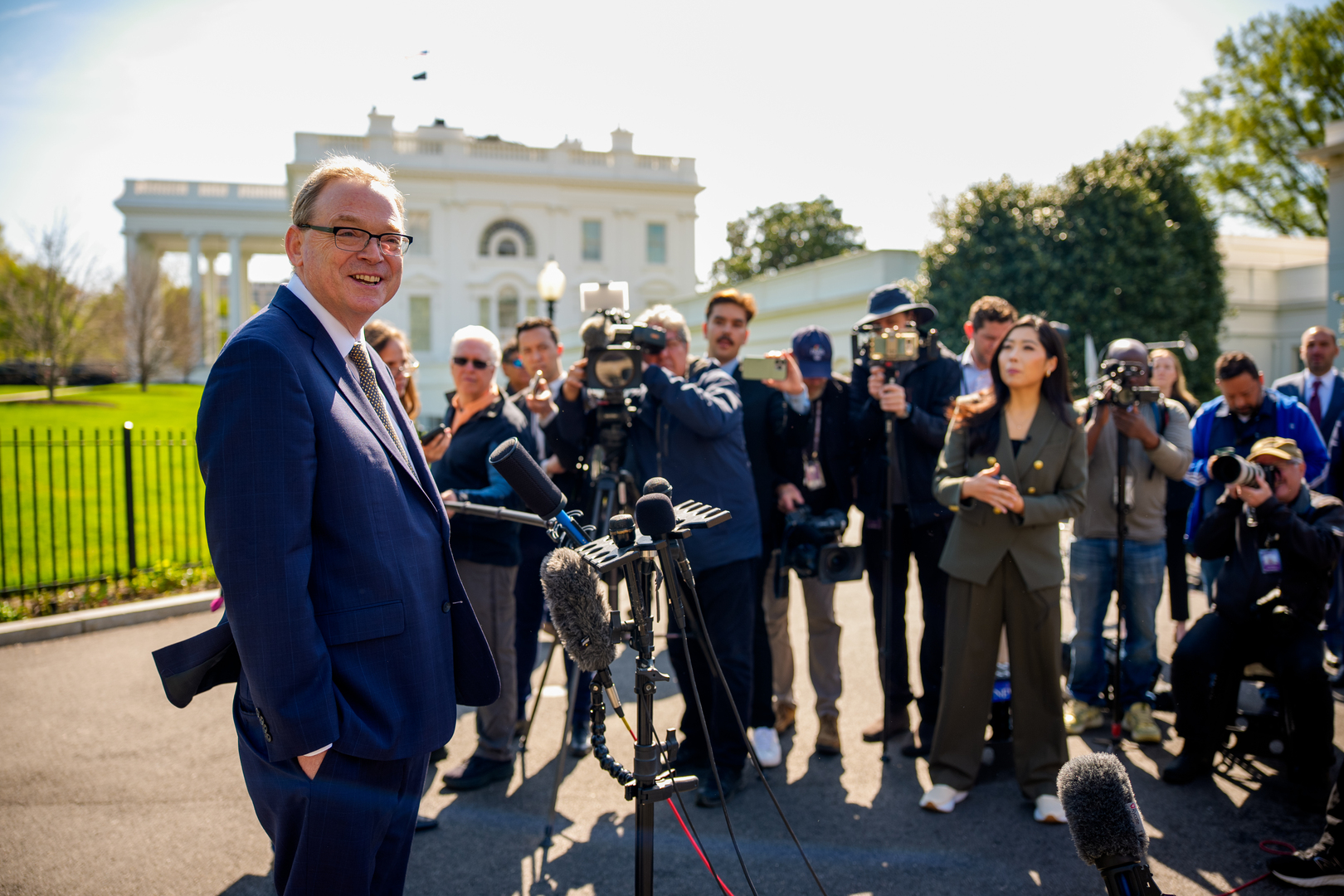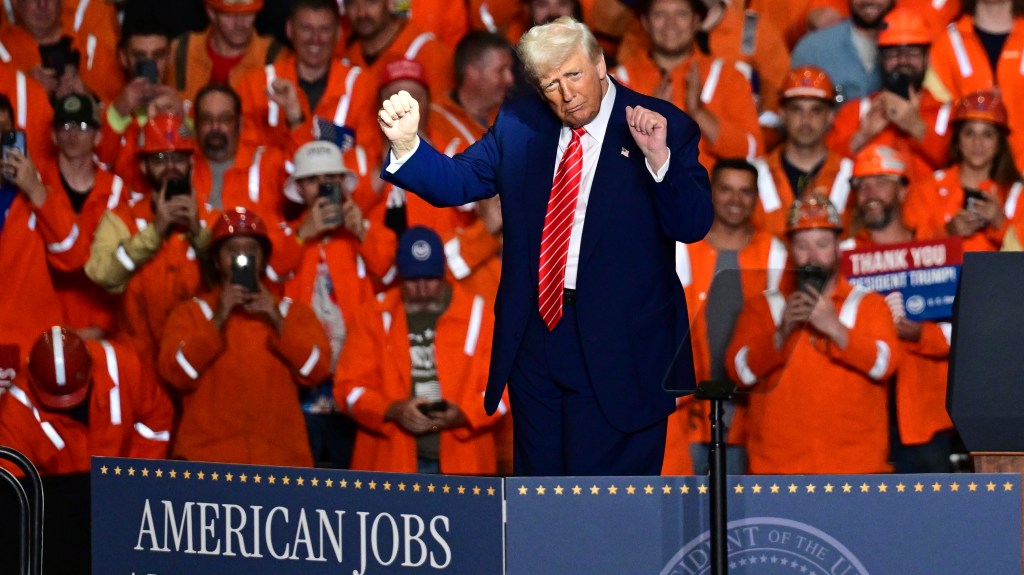Trump’s Steel Tariffs Pose Challenges for UK Industry During Trade Negotiations
Advisers to President Trump are standing by his decision to increase US tariffs on steel and aluminium to 50 percent, intensifying the pressure on the UK government to swiftly complete a zero-rate trade agreement that would protect British industries.
Scott Bessent, US Treasury Secretary, and Kevin Hassett, Director of the National Economic Council, stated that the forthcoming tariff hike, set to take effect on Wednesday, is warranted due to economic, industrial, and security considerations. This unexpected announcement was made by Trump during his visit to a steel facility in Pennsylvania.
In the meantime, the US-UK trade agreement, which Sir Keir Starmer and Trump hailed on May 8, has not yet been enacted. UK Secretary of State for Business and Trade, Jonathan Reynolds, is expected to advocate for rapid implementation of the established exemptions for steel and automobiles during his discussions with US Trade Representative Jamieson Greer this week in Paris at an OECD meeting.
The European Union has warned of potential retaliatory actions if Trump moves forward with the plan to increase tariffs on imported steel and aluminium. Canada, Australia, and Japan have also expressed concerns regarding the significant disruption to ongoing negotiations aimed at mitigating Trump’s reciprocal tariffs ahead of his July 9 deadline.
Bessent remarked on CBS News, “I was with the president at the US Steel plant in Pittsburgh, and I can assure you that he has revitalized the steel industry in America. There are national security considerations at play for maintaining a robust steel industry.”
Hassett reinforced on ABC News the necessity of protecting the US steel industry for national security in light of China’s steel output, asserting, “We must demonstrate strength. It is essential that our steel industry is ready to support American defense.”

Gareth Stace, director-general of UK Steel, noted that the original 25 percent tariff announced by Trump in March remains in effect “while officials finalize the specifics of the US-UK decision.”
He warned that British steelmakers exporting to the US would indeed be affected by the new 50 percent tariff, as the US is the second-largest market for UK steel, accounting for approximately £400 million in annual exports.
Stace described the impending tariff increase as “another severe blow” to UK steelmakers during an already difficult period, cautioning that it could lead to order cancellations.
“UK Steel is urging our government to finalize the agreement to eliminate the import tax on British steel urgently. Steel manufacturers should not bear the burden of this drastic tariff increase on US imports,” he added.
The European Commission has indicated its readiness to respond to Trump’s decision to double tariffs, raising concerns of an escalating trade dispute just as negotiations had seemed to reach a temporary resolution. The Commission expressed strong disapproval of Trump’s proposal to increase tariffs, stating that it “undermines ongoing efforts to achieve a negotiated resolution.”
A Commission spokesperson mentioned that the European Union “is prepared to undertake countermeasures.”
Previously, the EU had suspended countermeasures on Trump’s tariffs to facilitate negotiations. “The European Commission is in the process of concluding consultations on broader countermeasures. Should a mutually acceptable solution not be achieved, both current and additional EU measures will automatically come into effect on July 14 or sooner, if necessary,” the spokesperson confirmed.
The Canadian Chamber of Commerce criticized the tariff hike as “contradictory to North American economic security,” warning that dismantling efficient, competitive cross-border supply chains in steel and aluminium could impose significant costs on both nations.




Post Comment